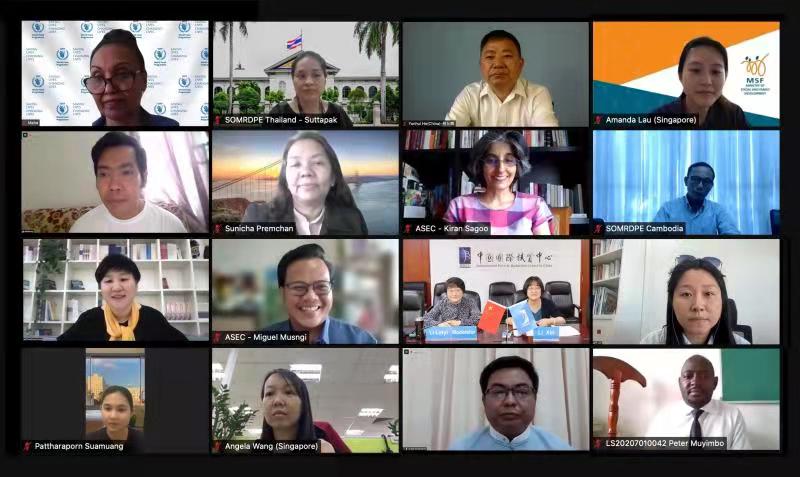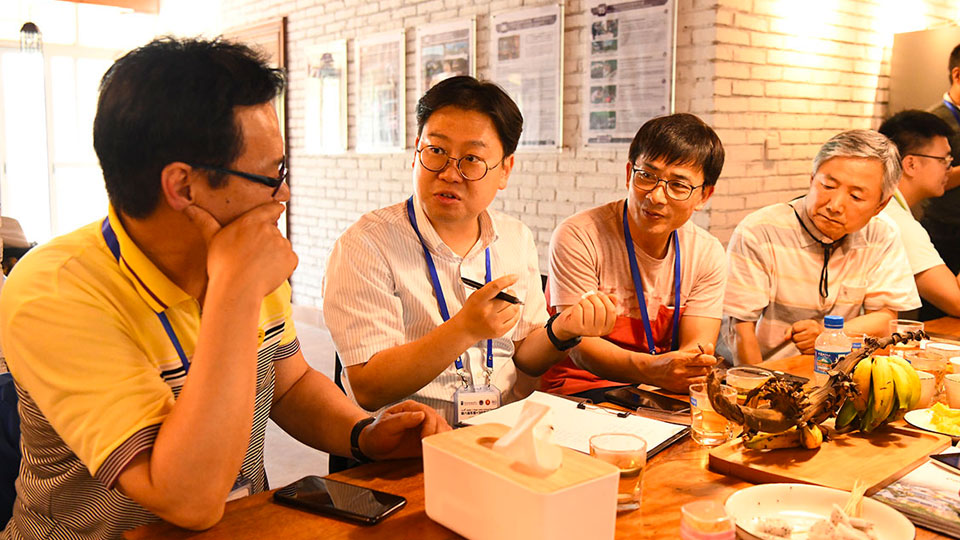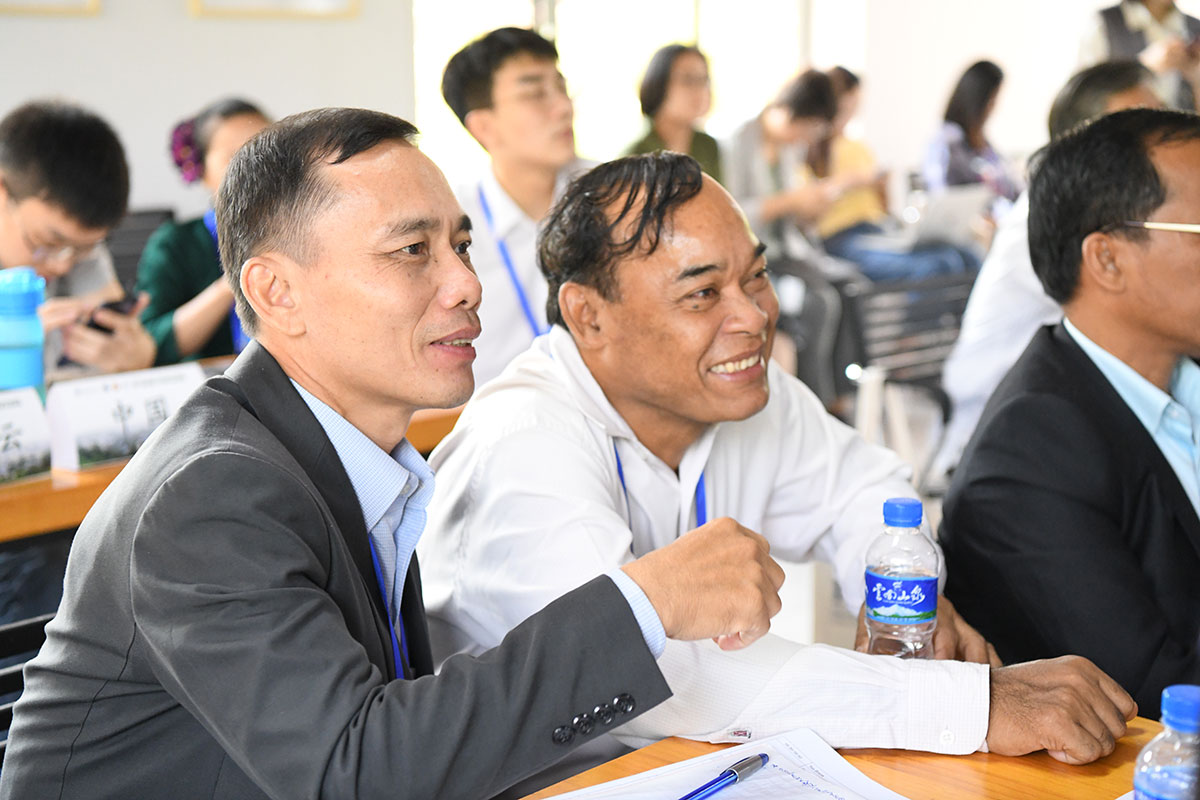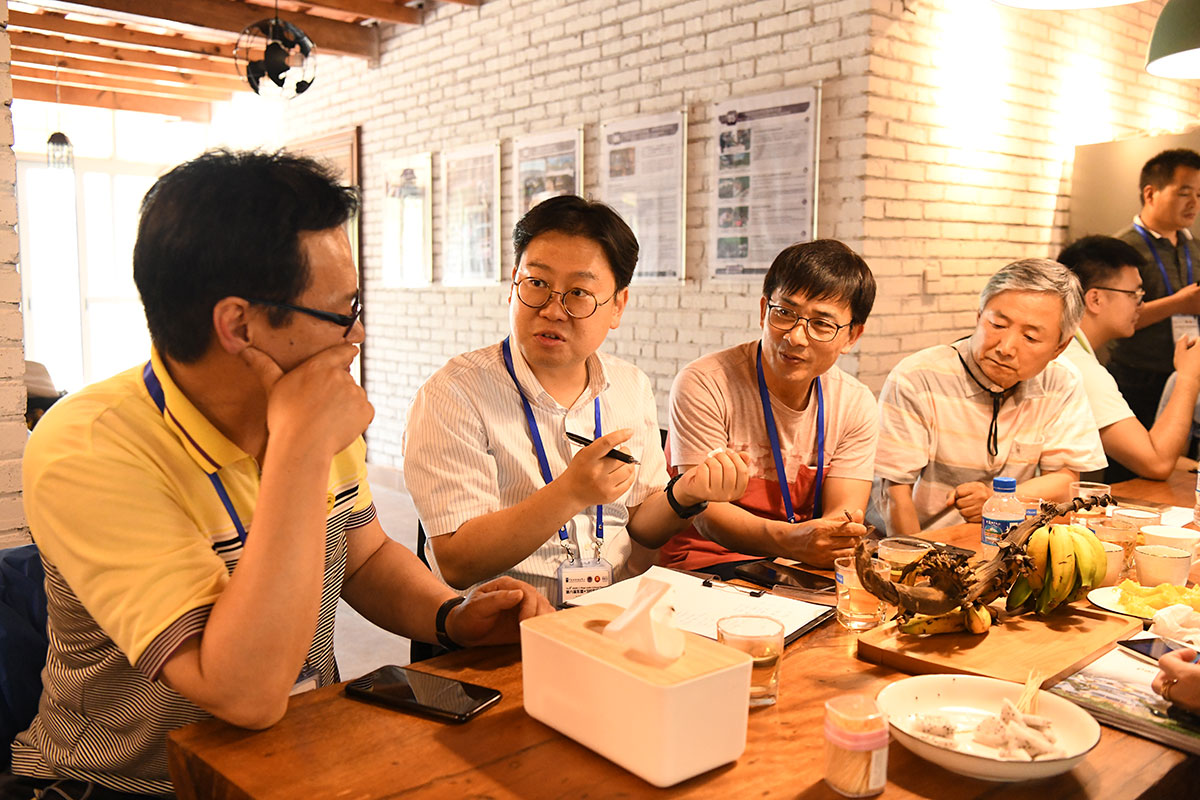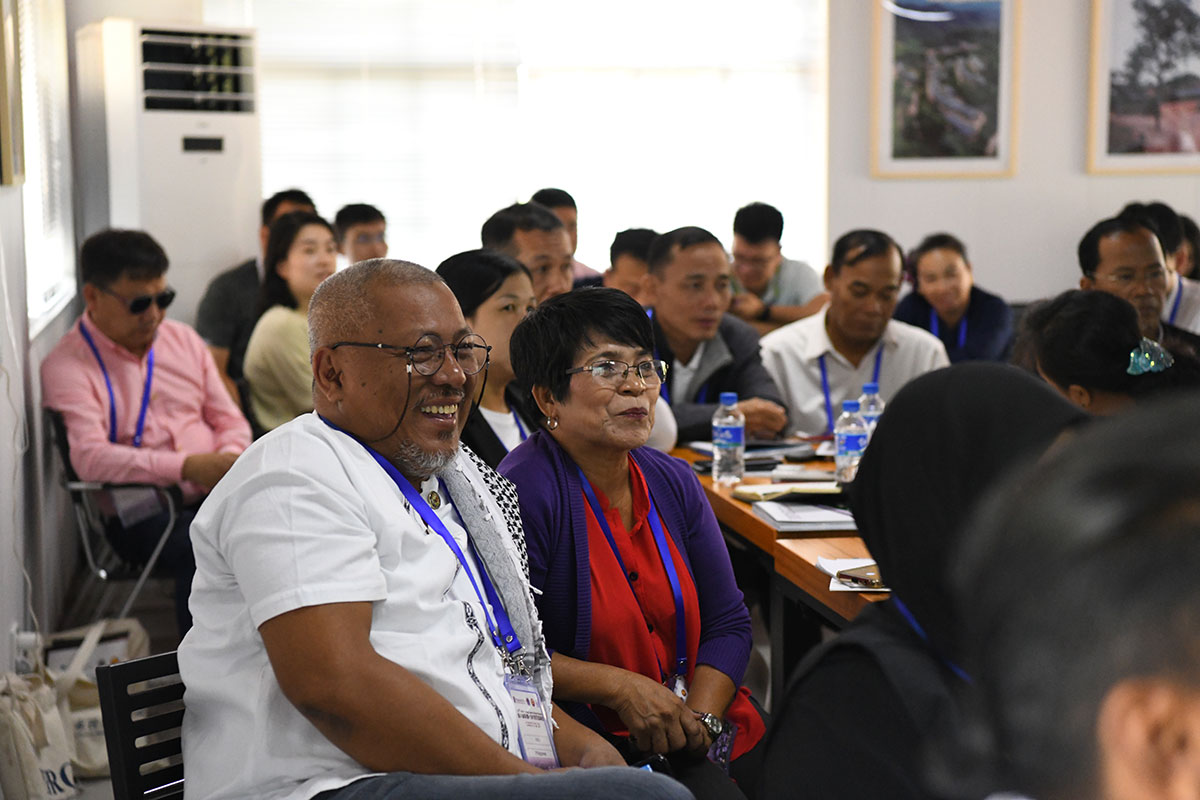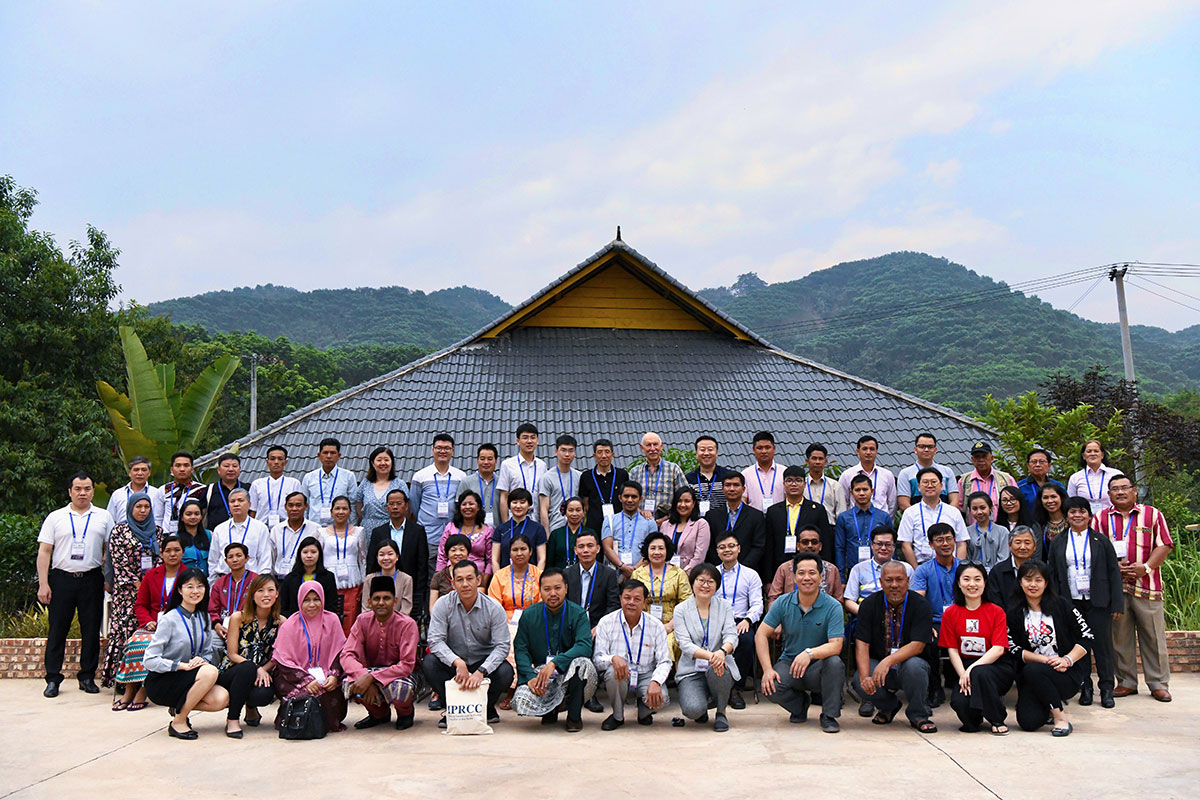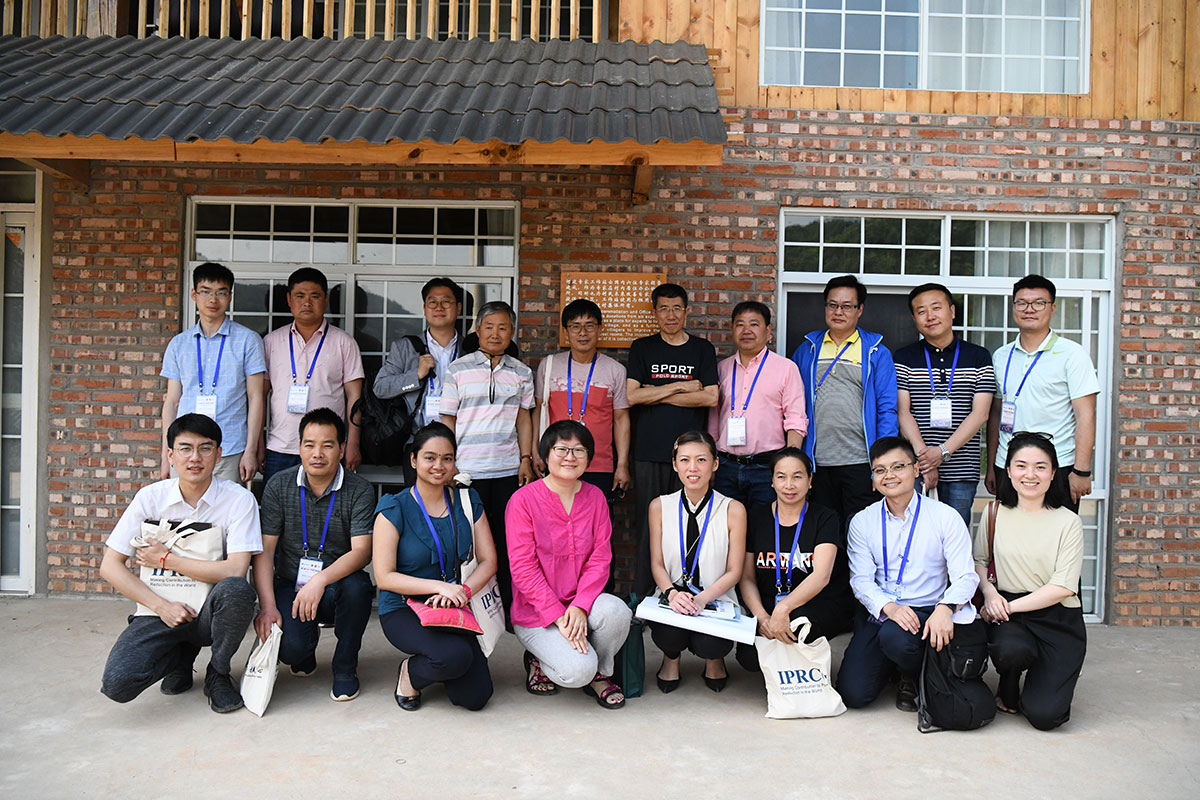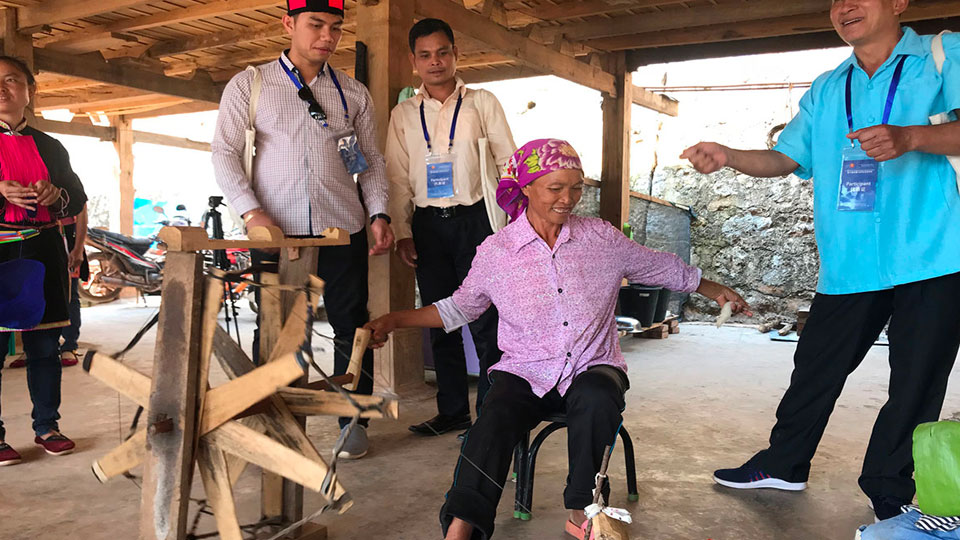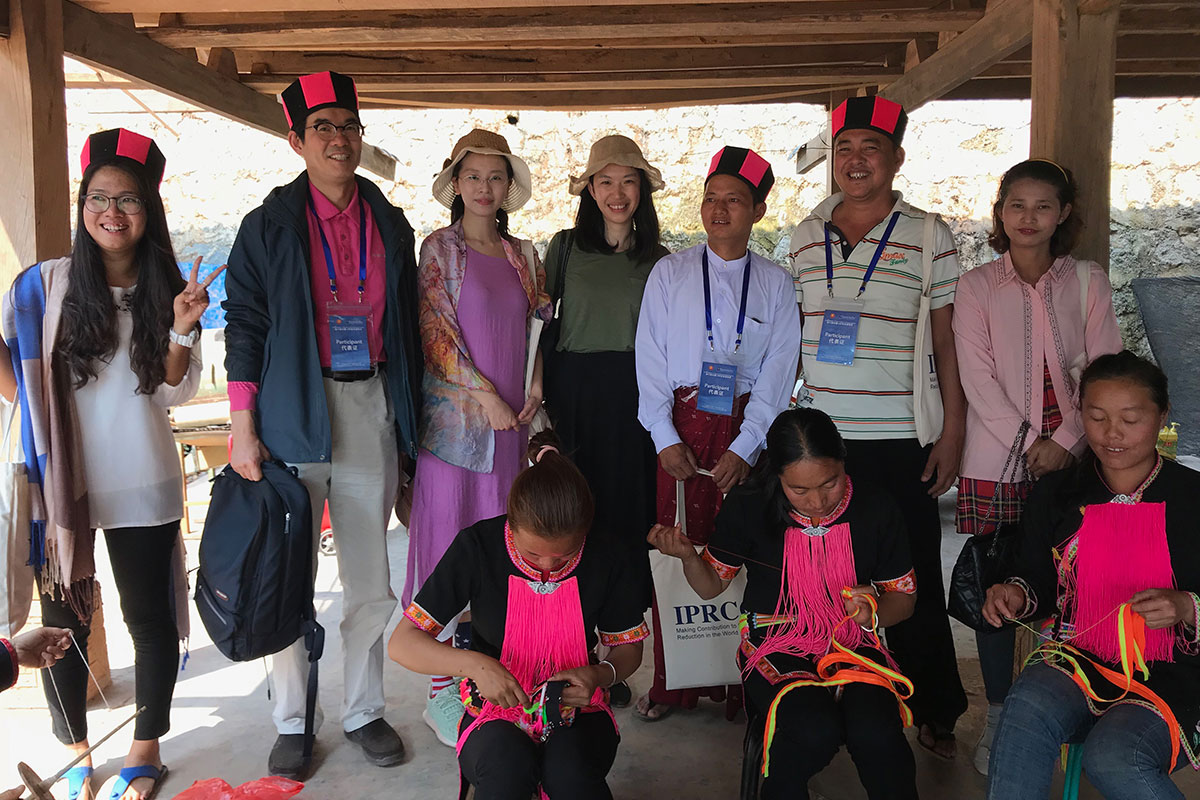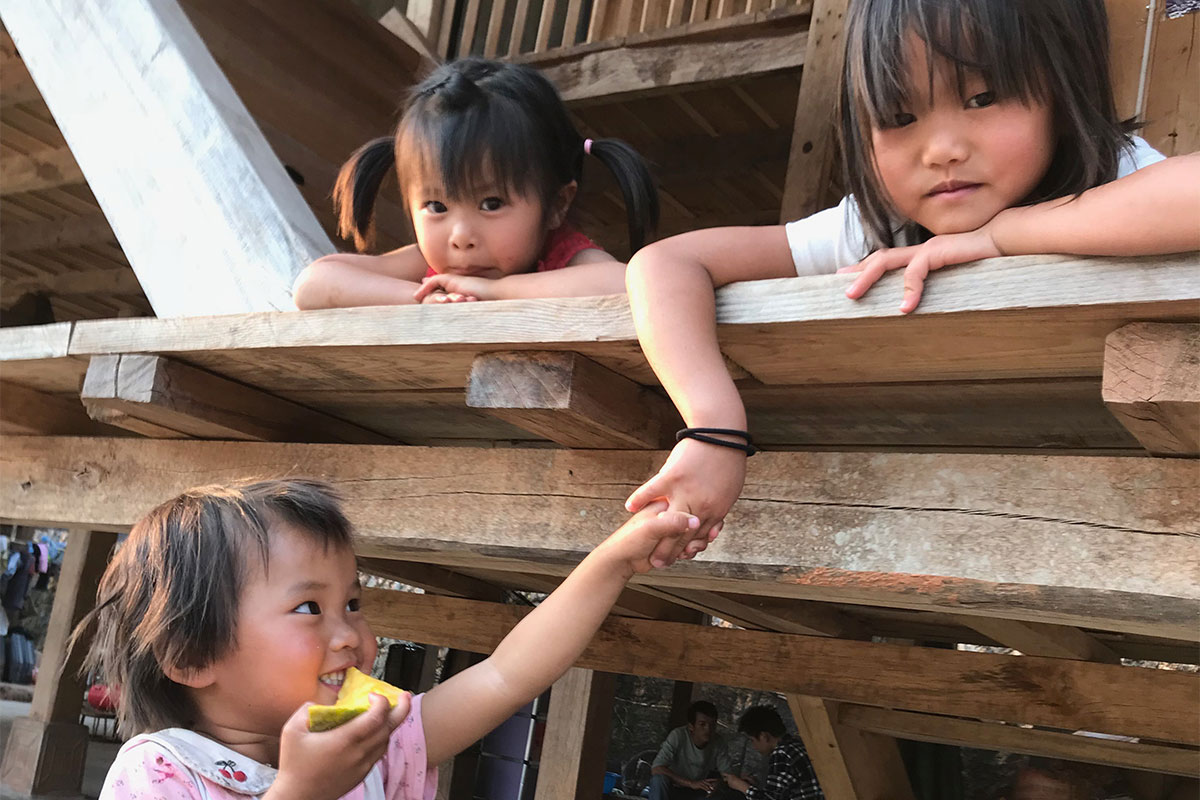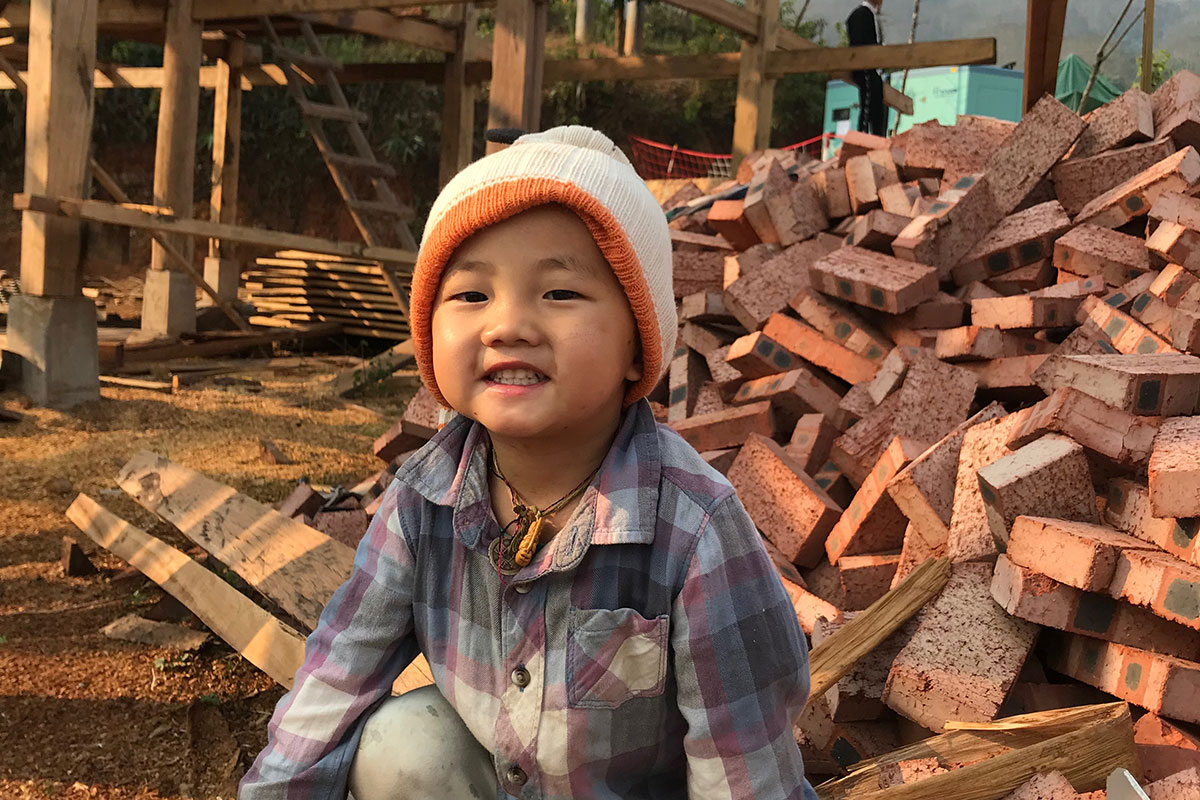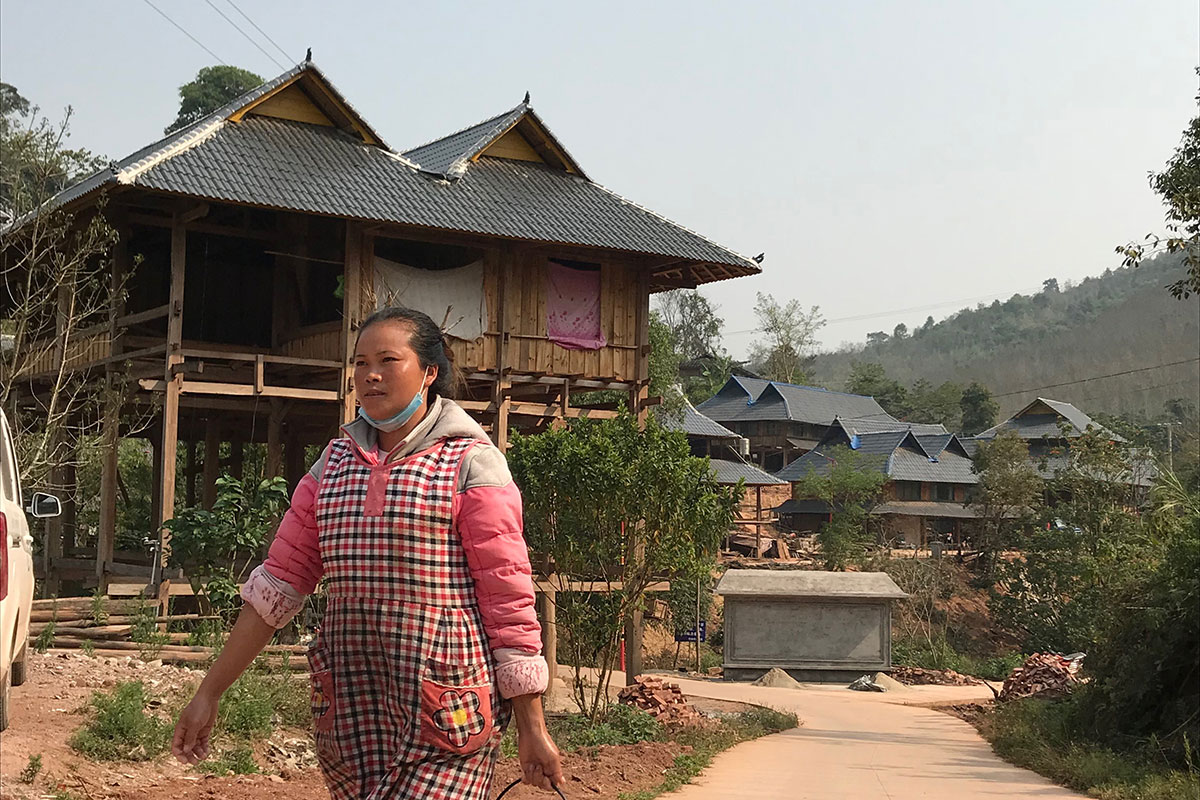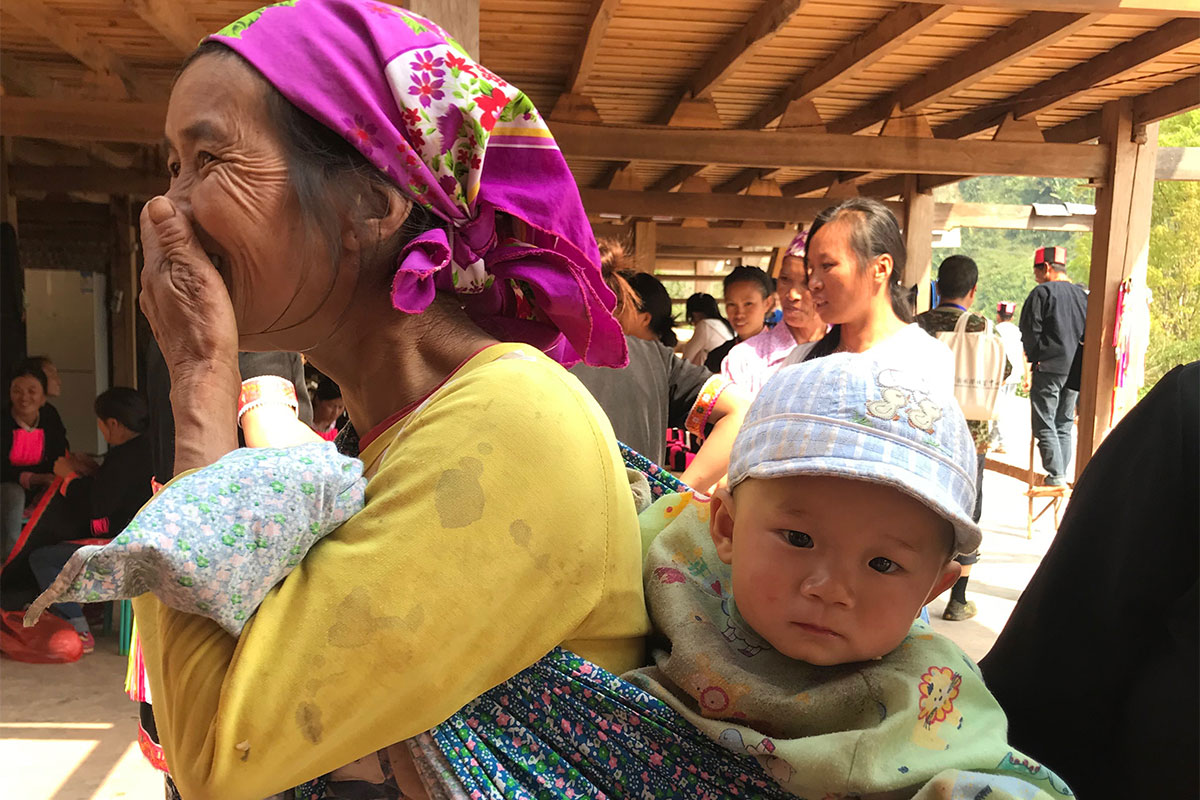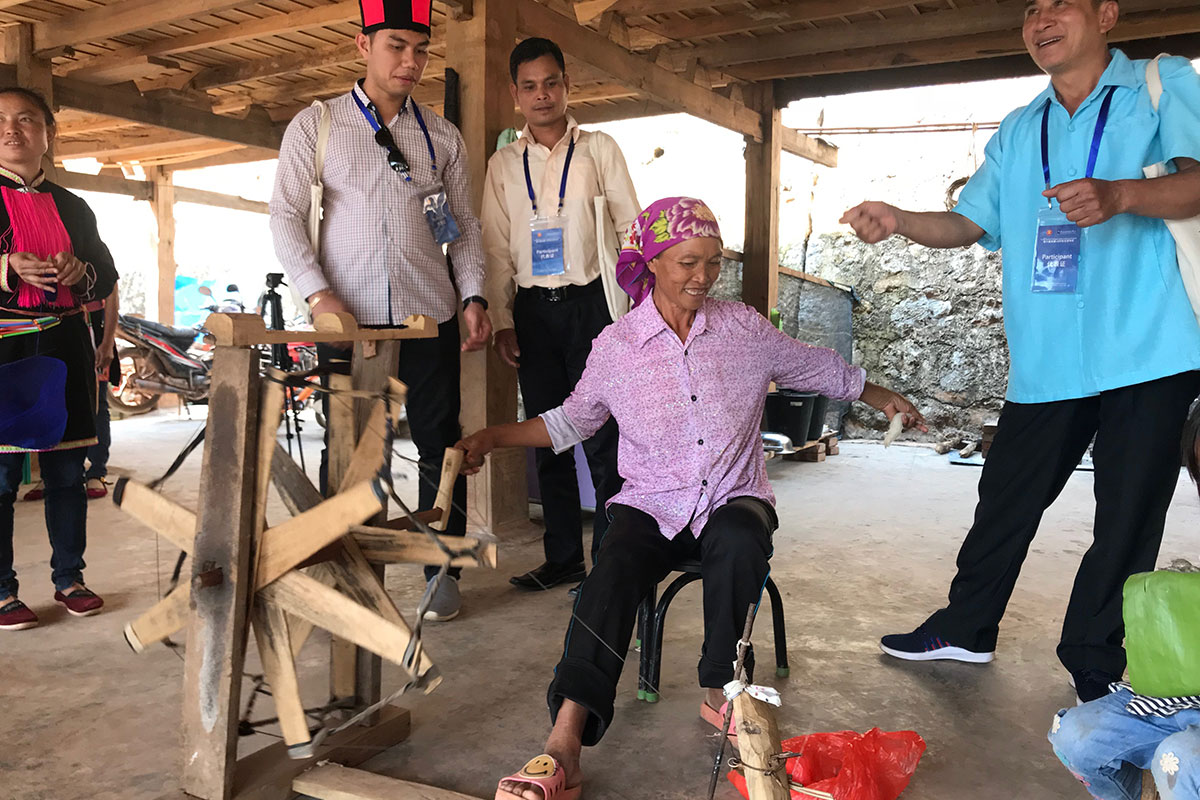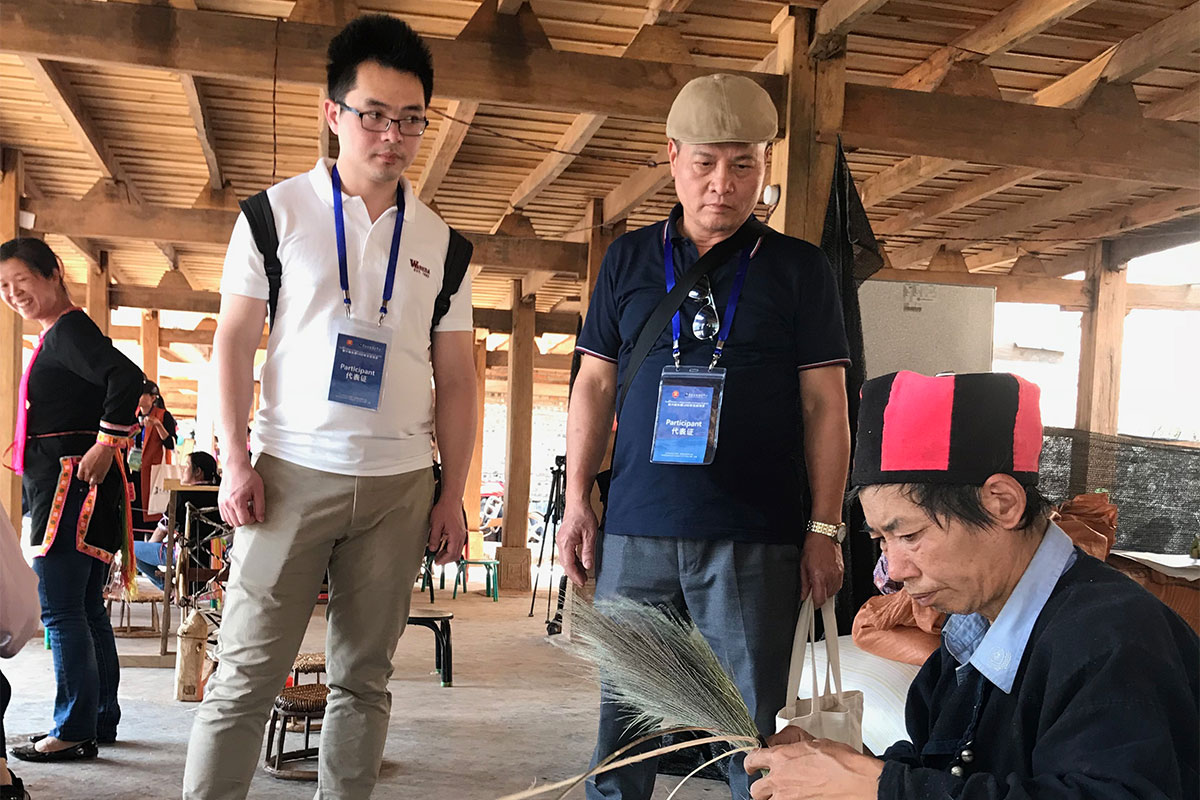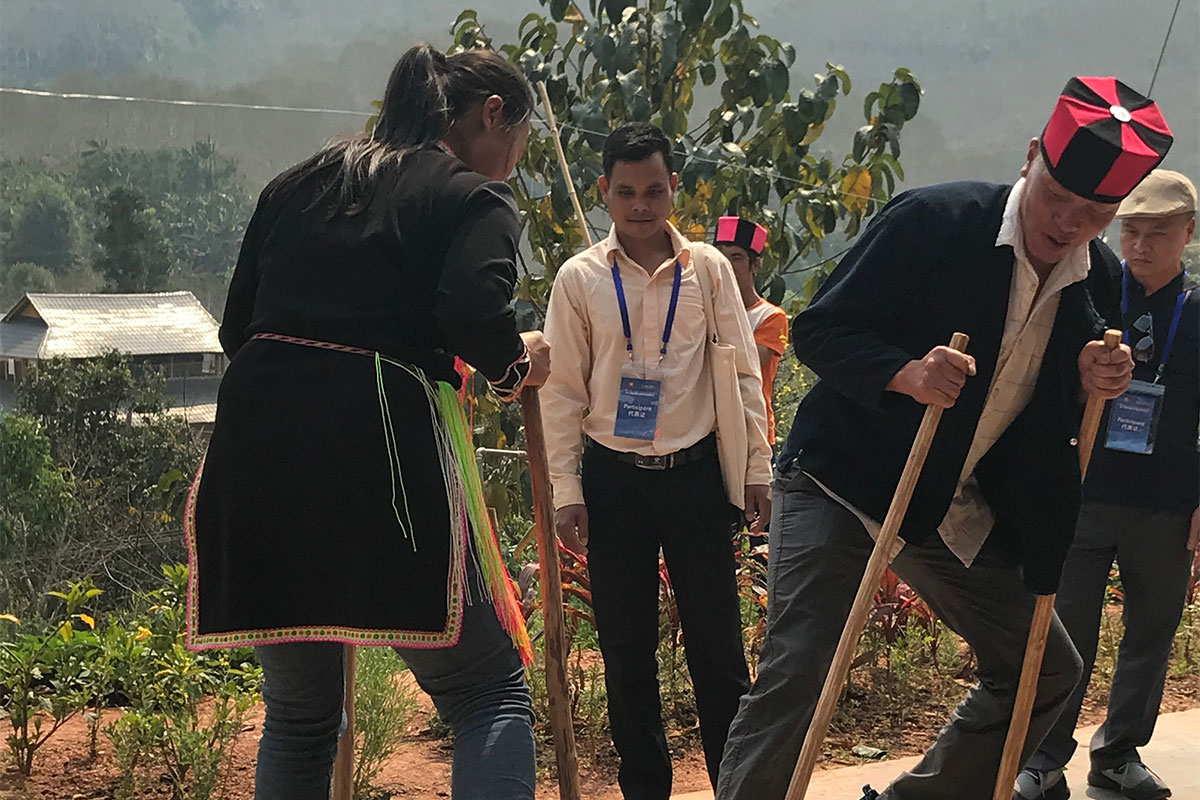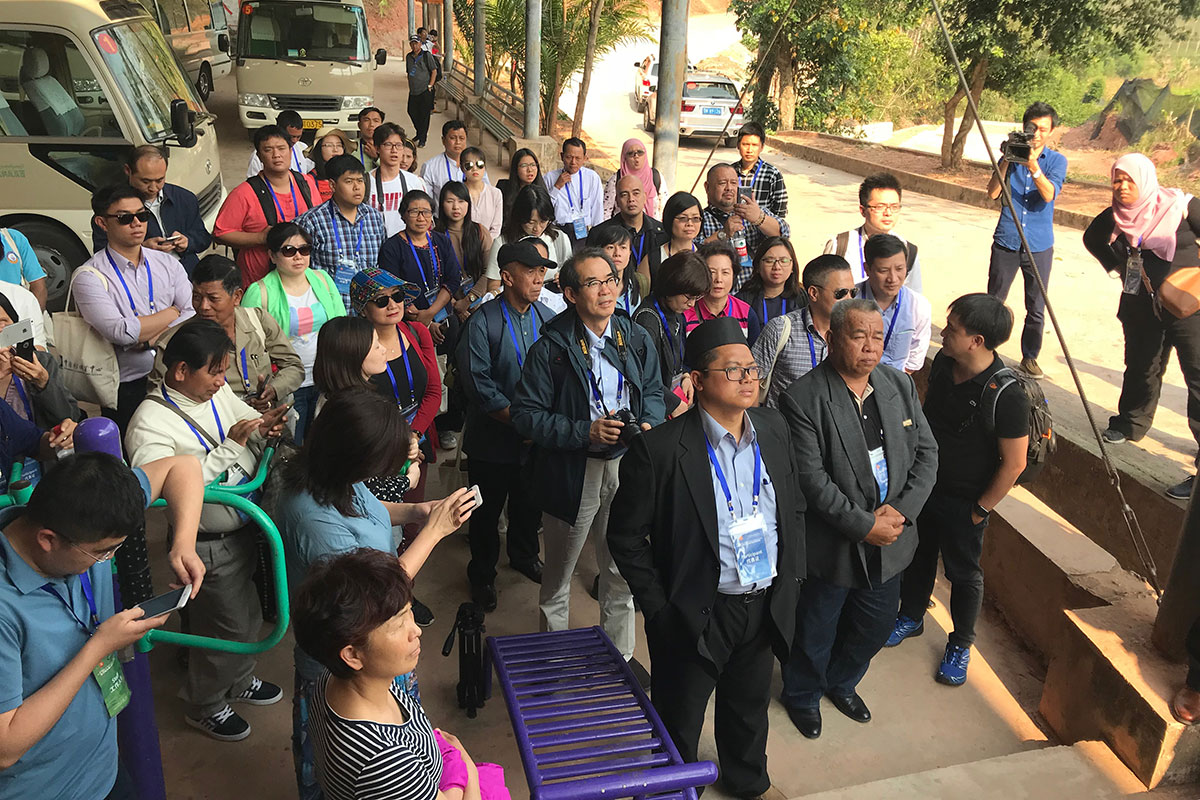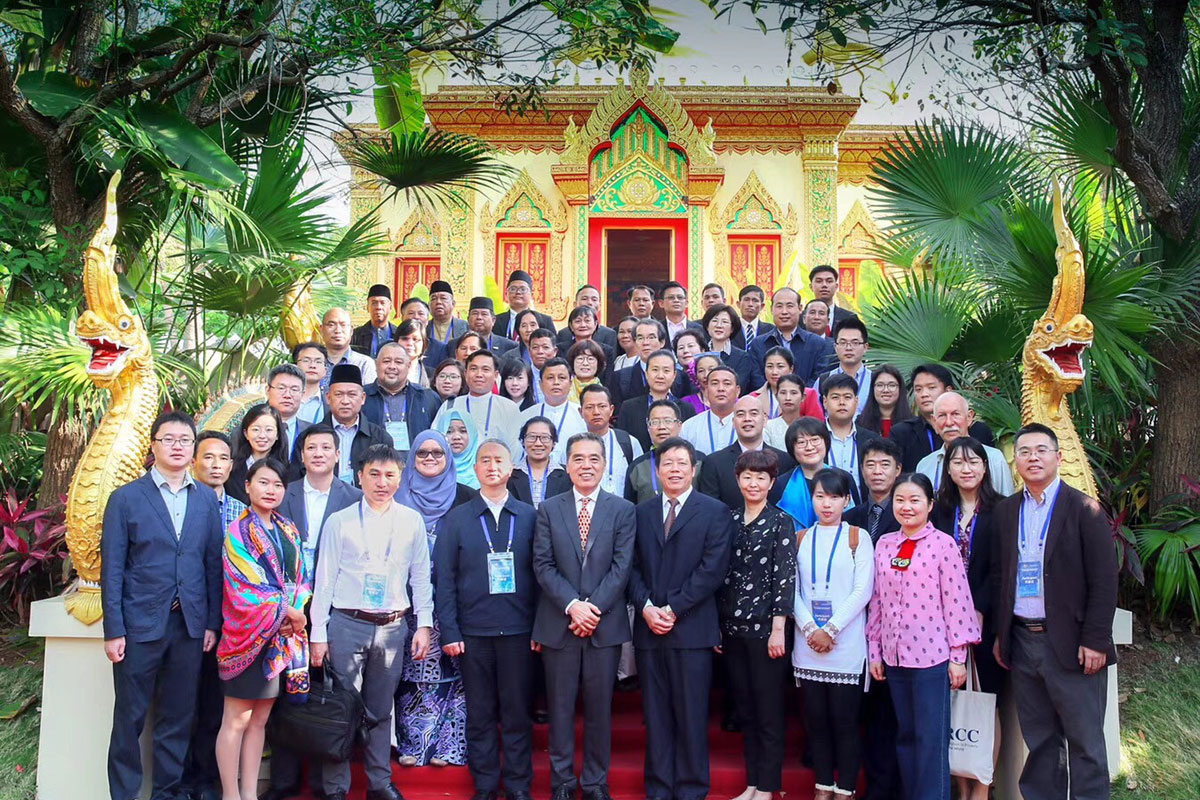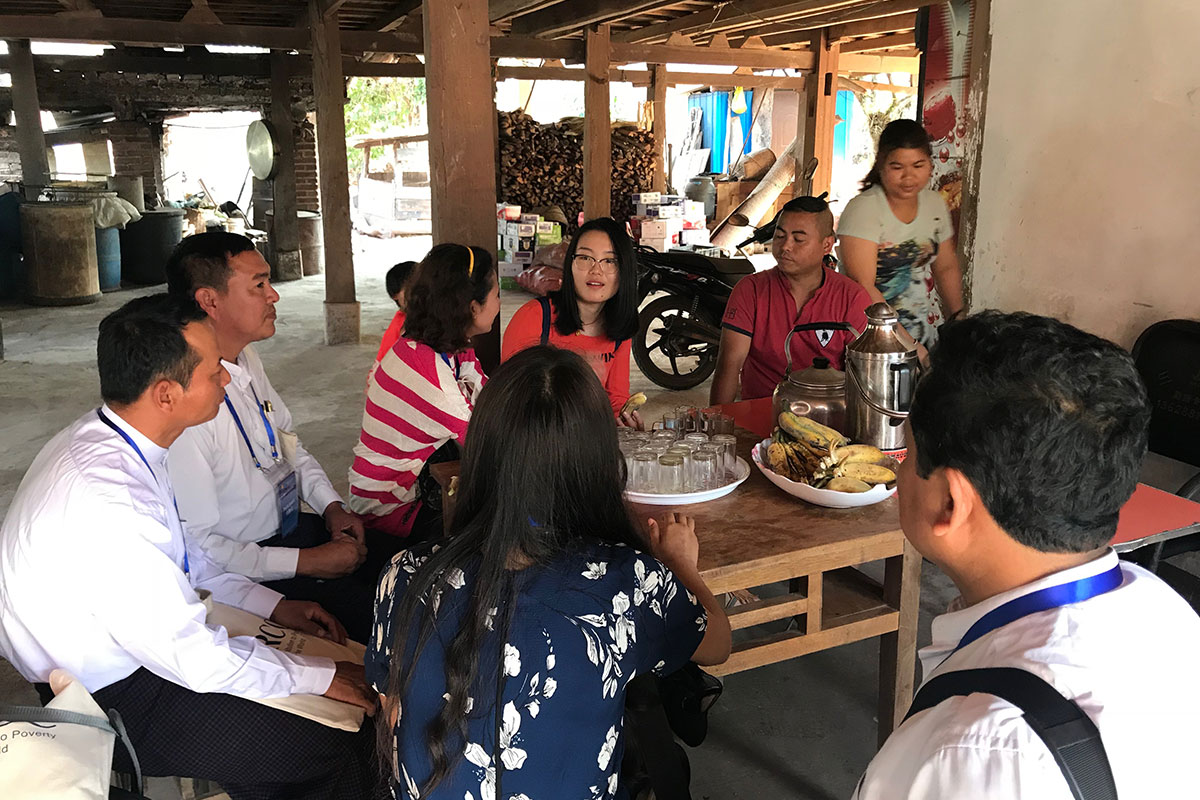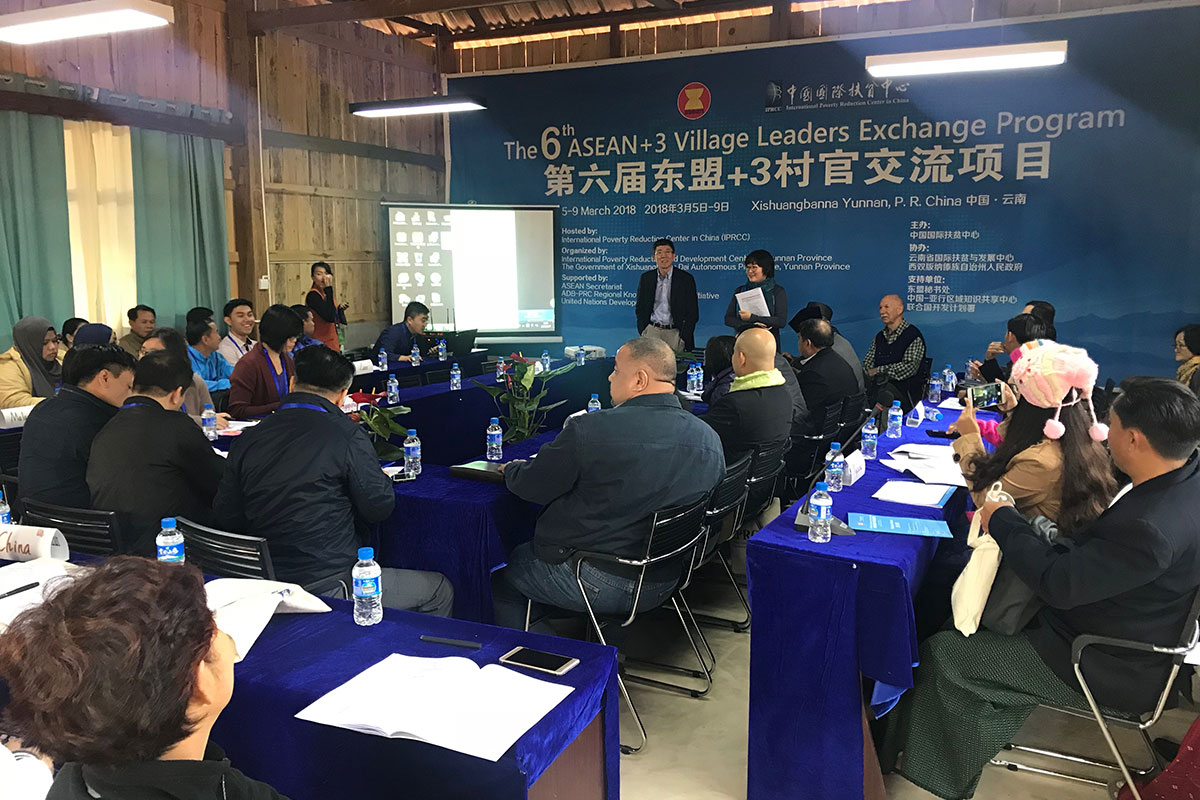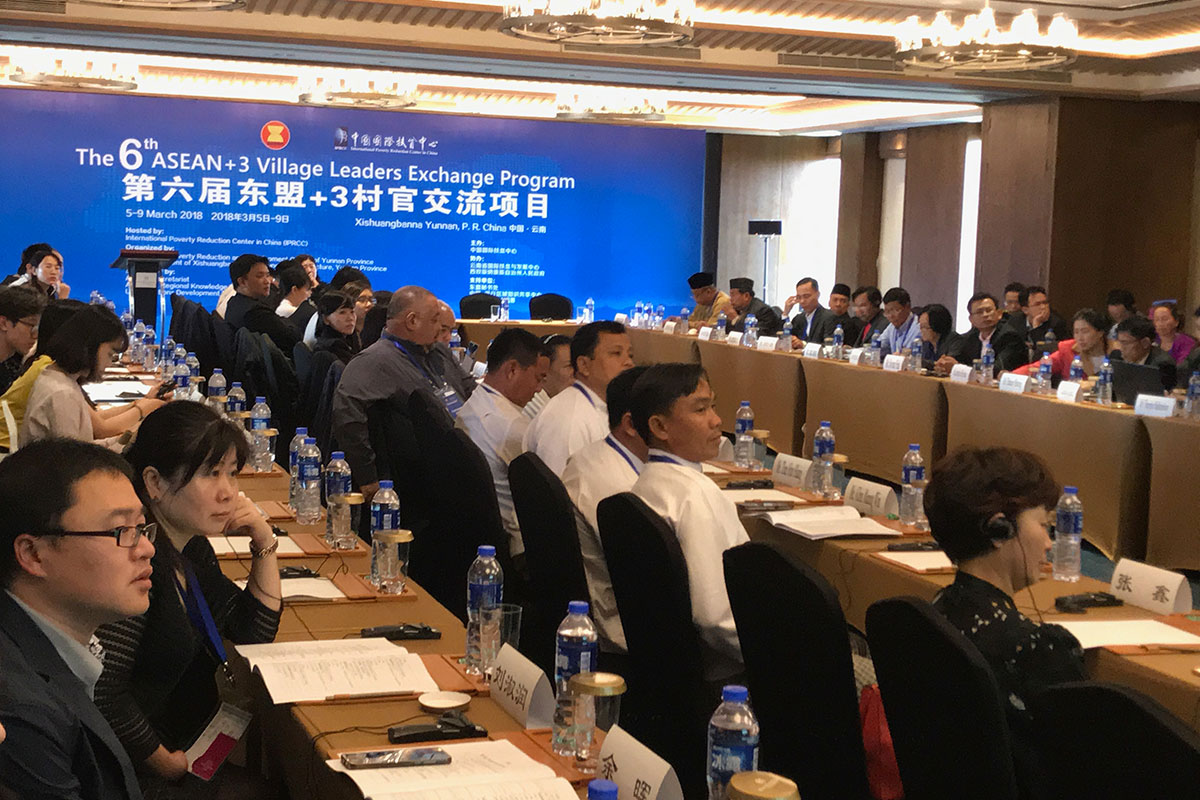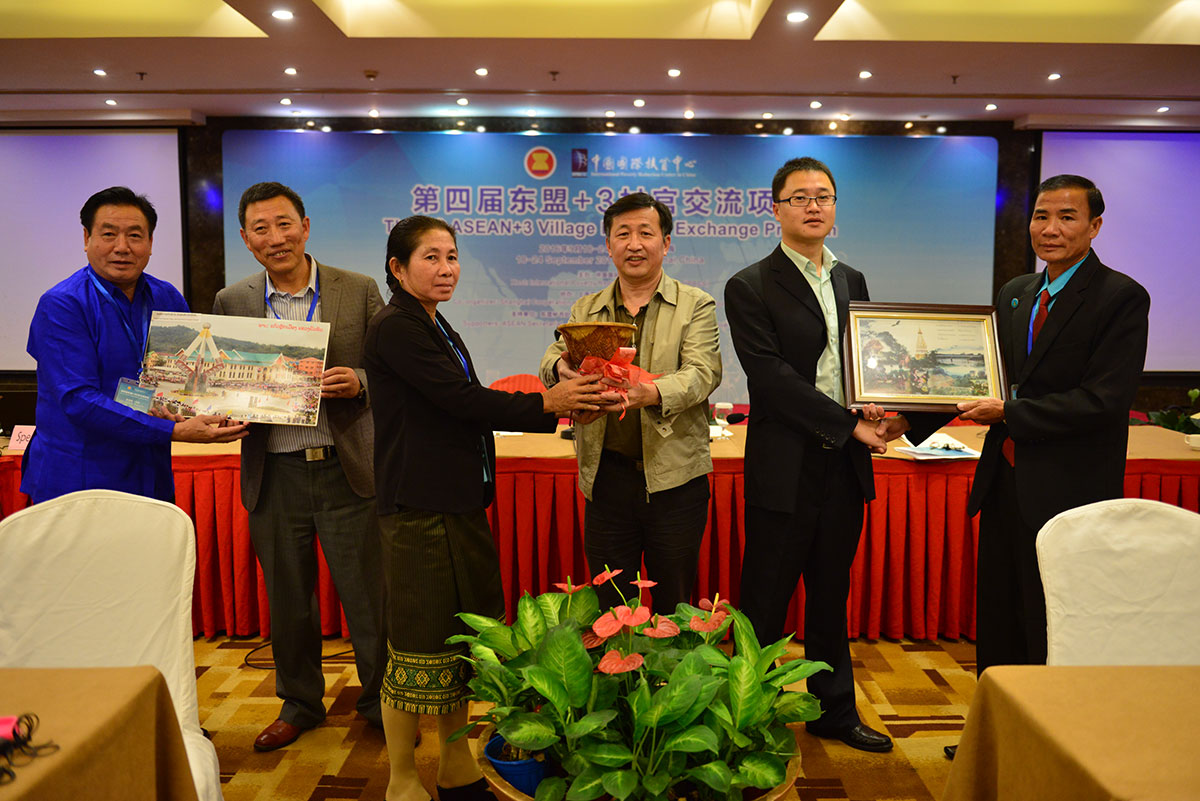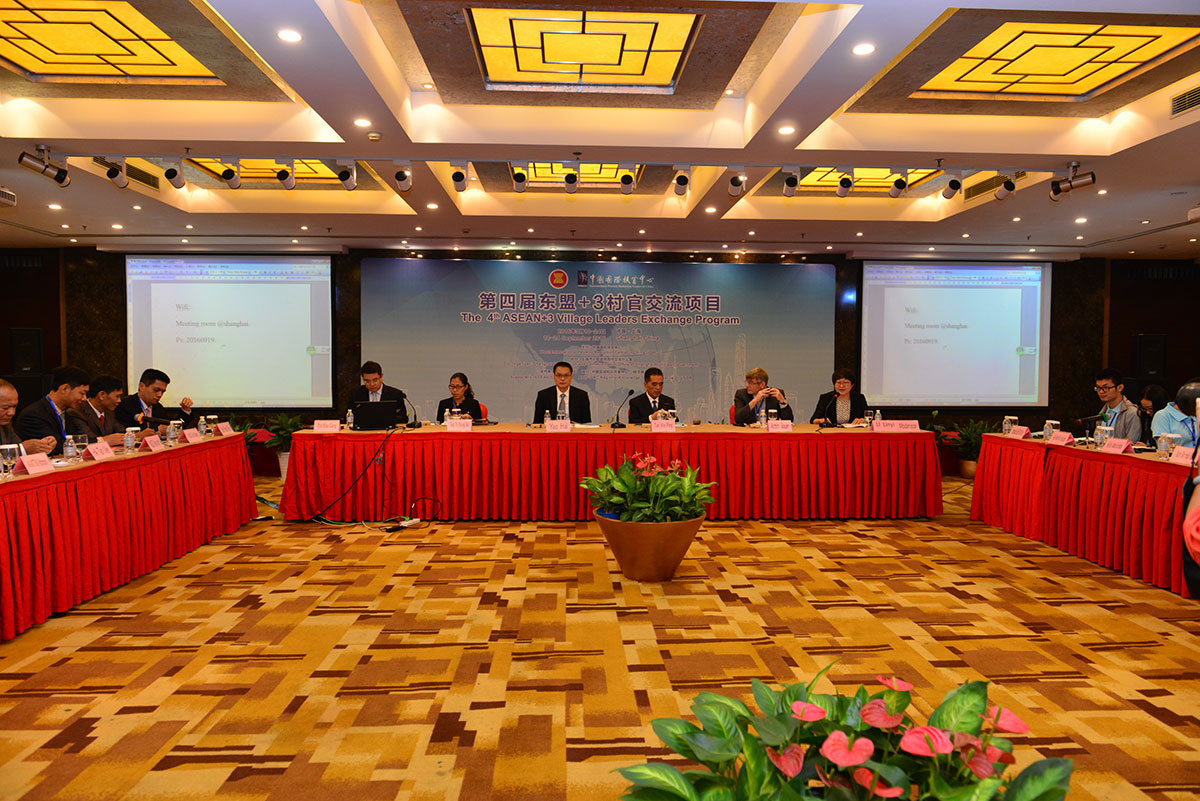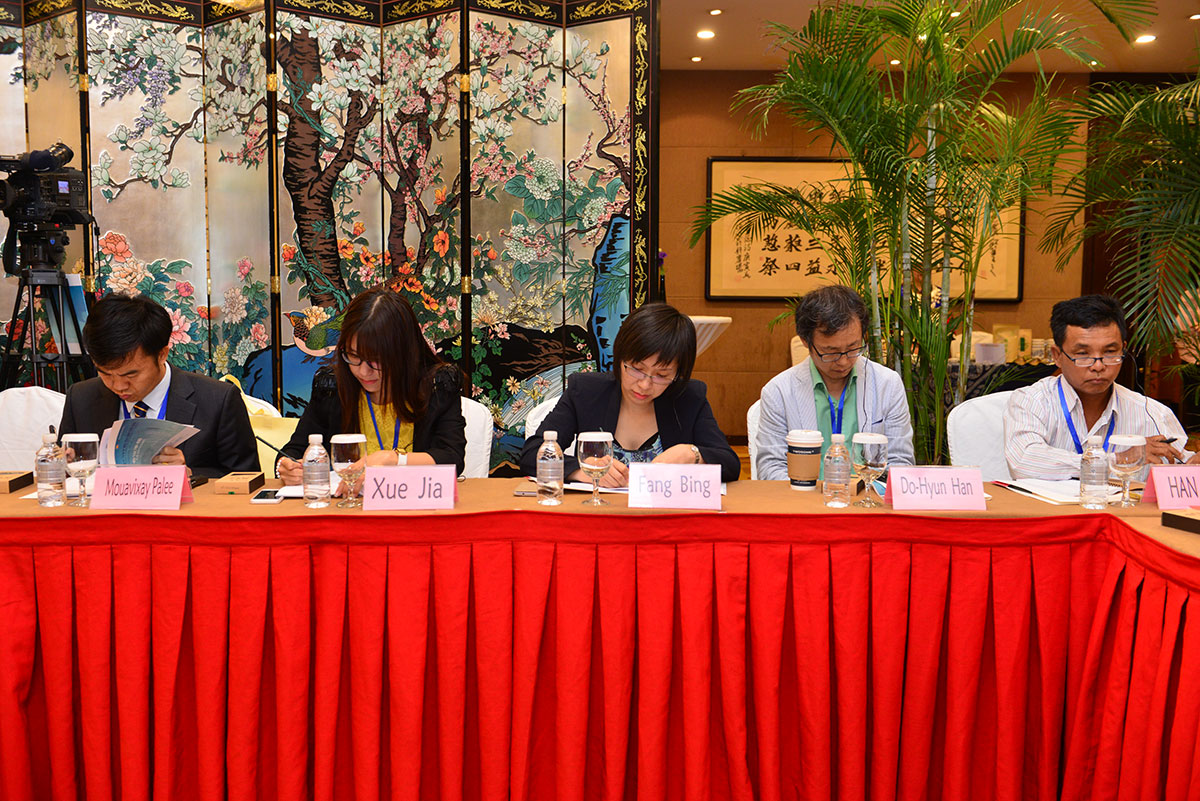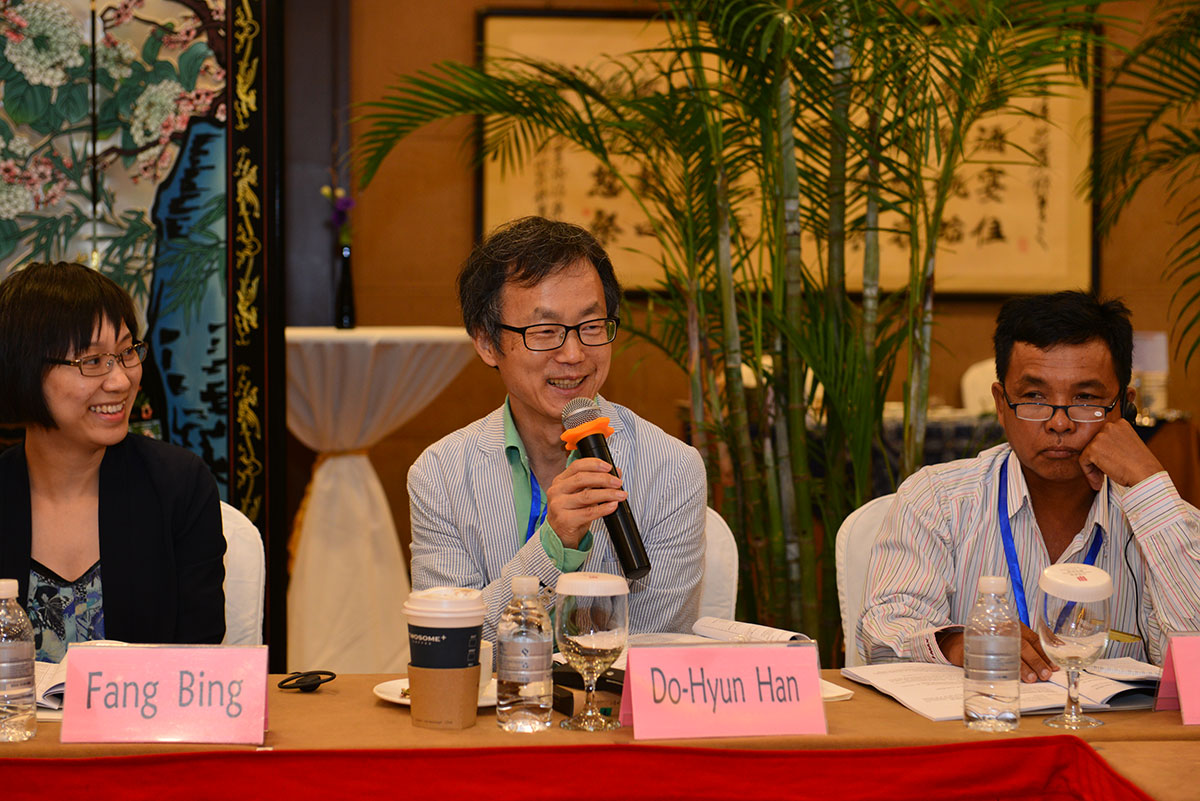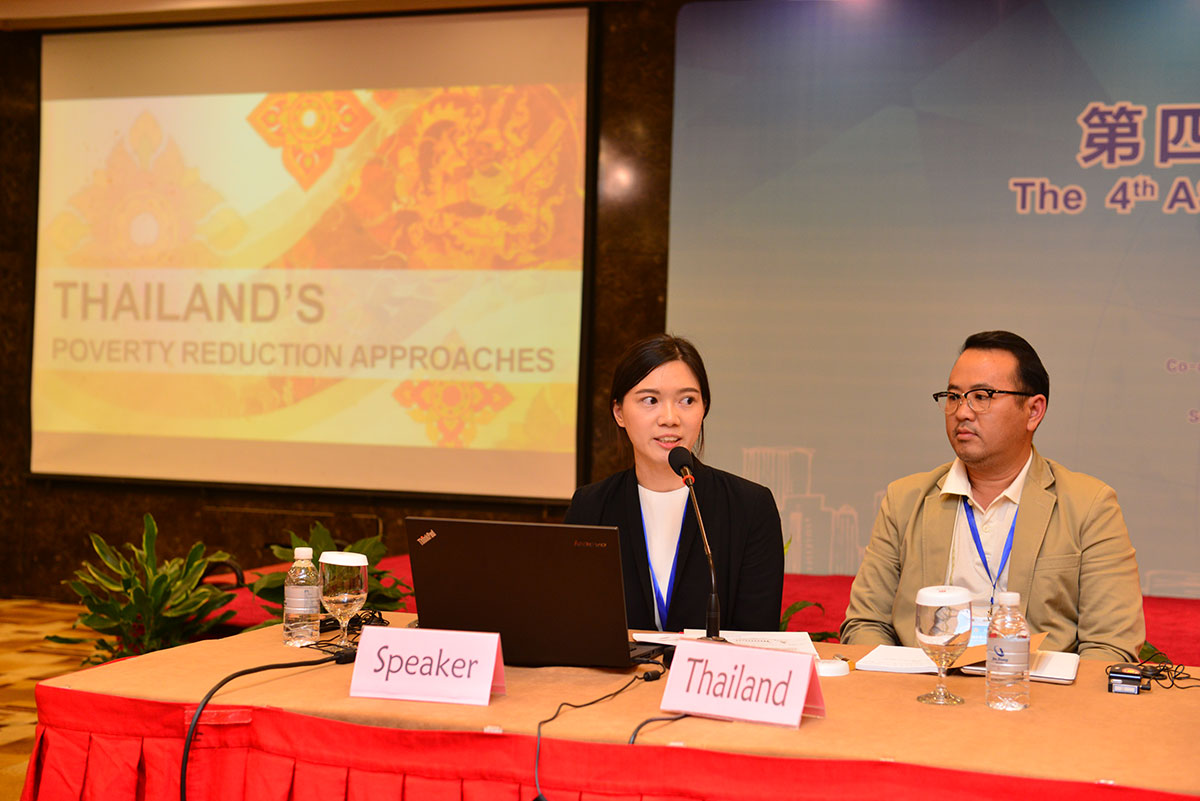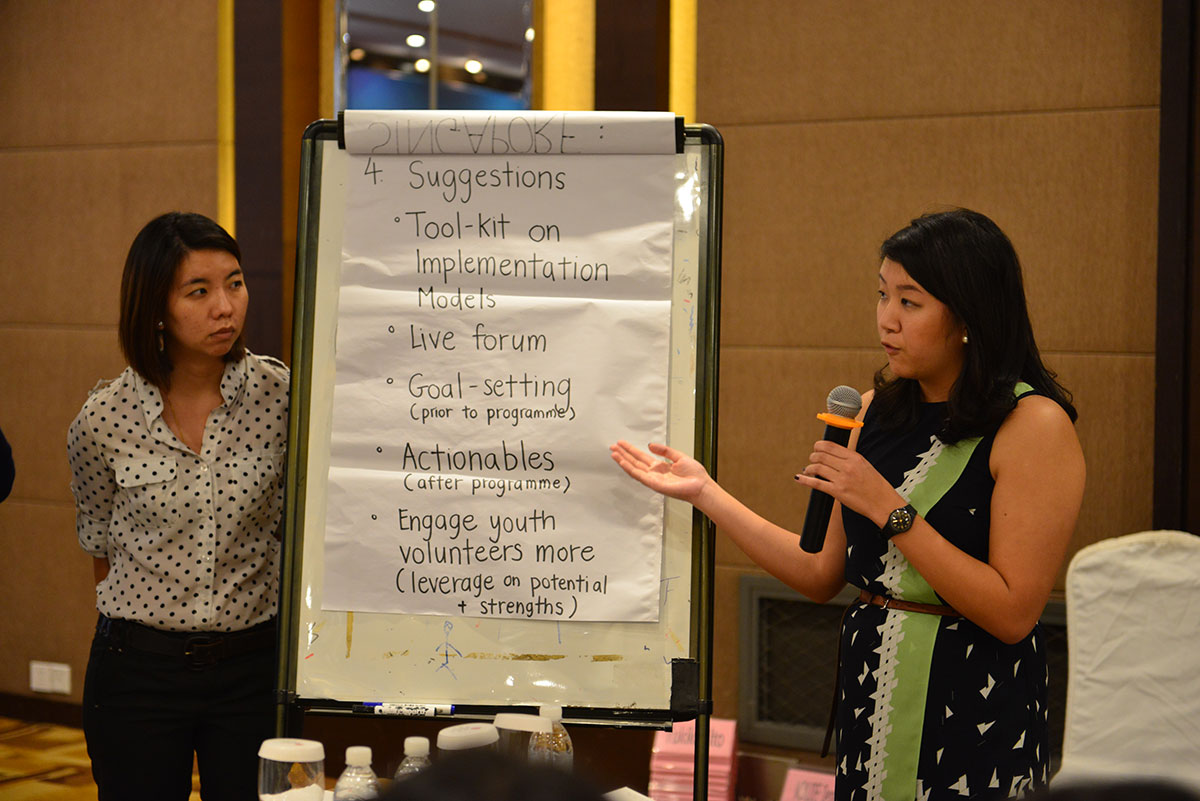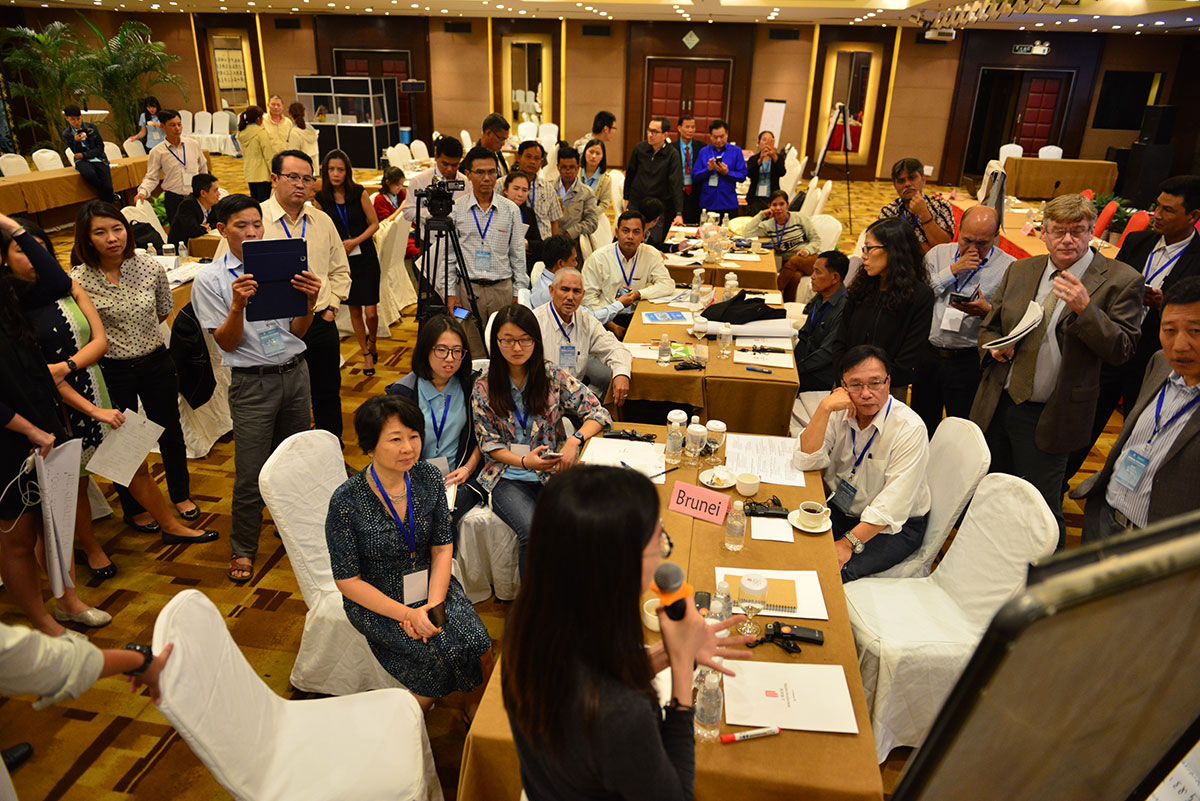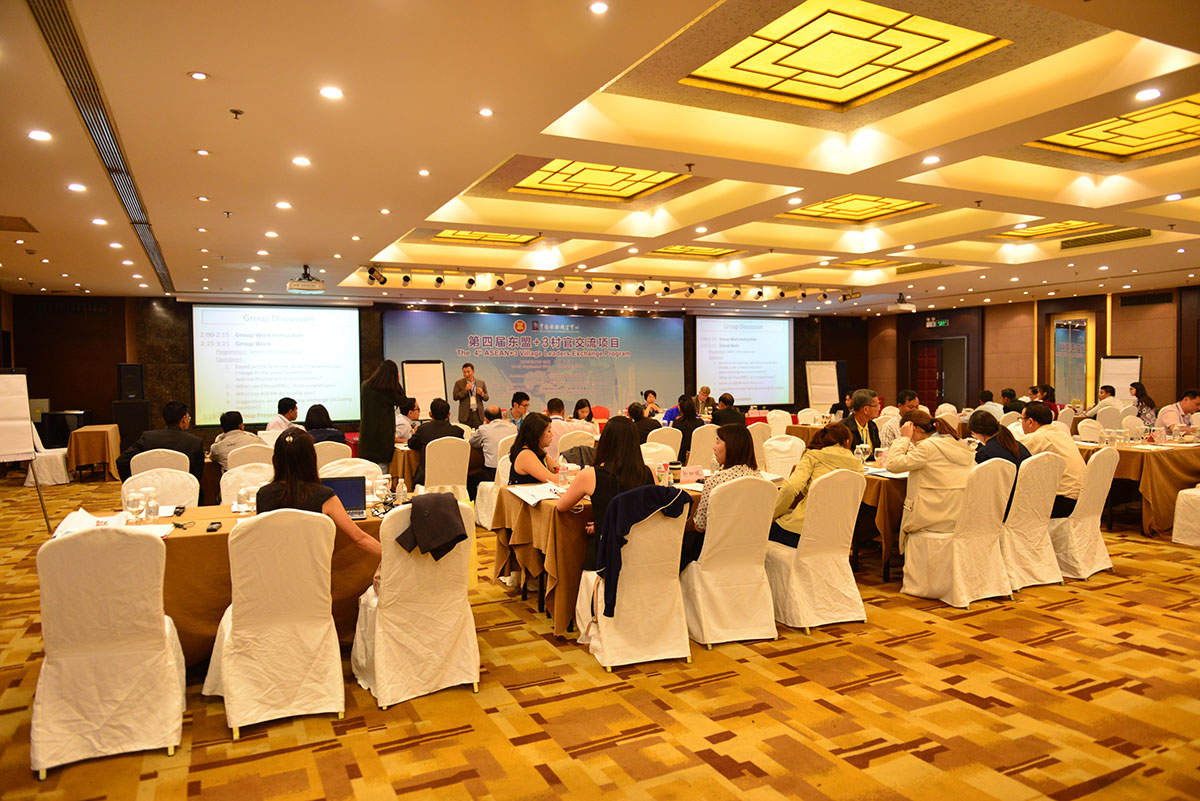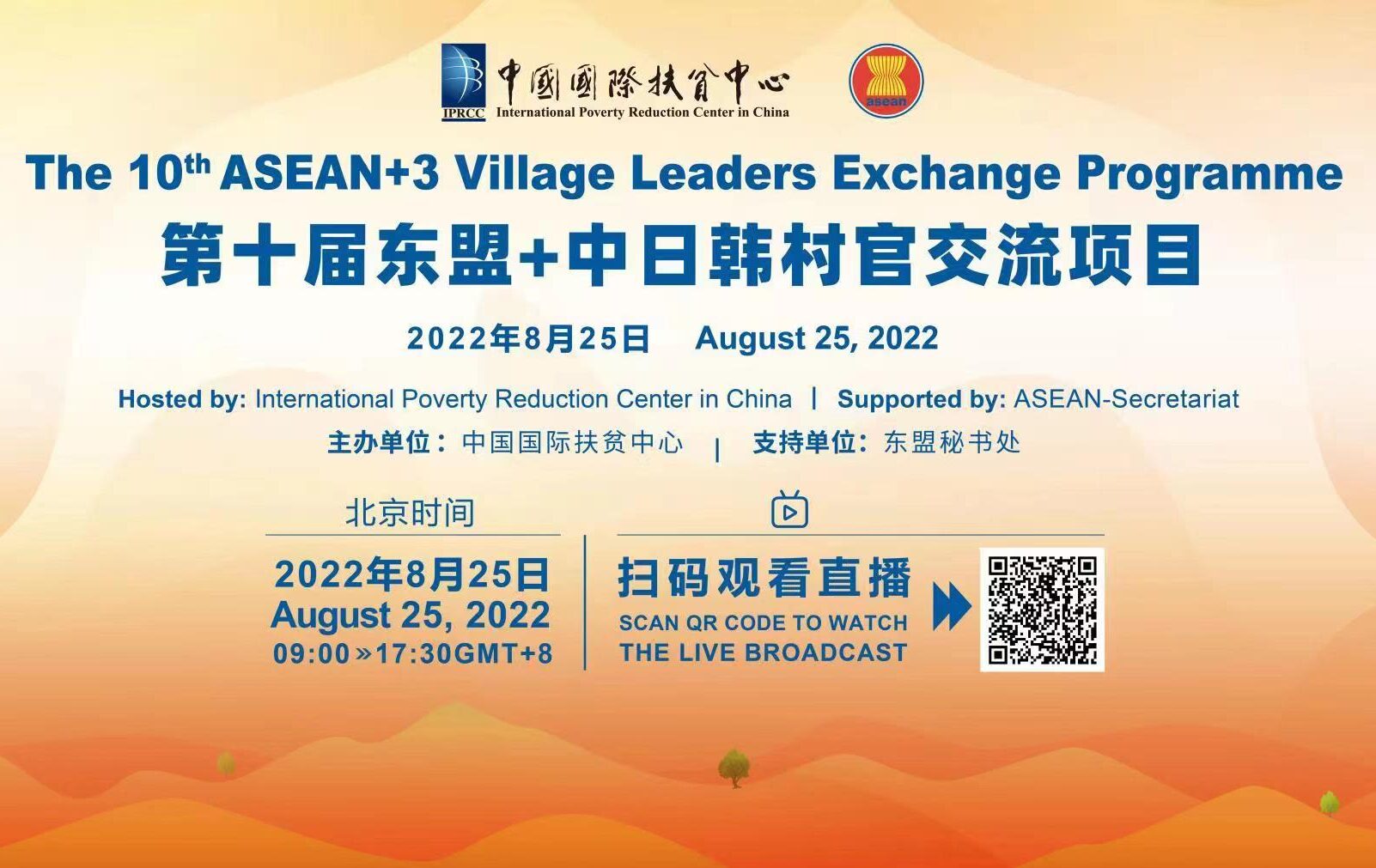
“The ASEAN+3 Village Leaders Exchange Programme” is the first regional poverty reduction exchange activity for the grassroots organized by China International Poverty Reduction Center (IPRCC). It targets the leaders and promoters of rural community development – village officials, and expands the sharing of poverty reduction knowledge to grassroots village officials. The programme has been promoting the development of rural communities in ASEAN countries and the PRC, Japan and Republic of Korea, through capacity building of village leaders in the region. Since 2013, the programme has been successfully held for eight series in the PRC and Malaysia , and has been fully recognized by all parties.
This year, the event focuses on “From Poverty Reduction to Sustainable Rural Development”. Click here to view live streaming.
Agenda:
| Time | Program |
|---|---|
| 9:00 – 9:40 | Opening Ceremony Moderator: LI Xin, Deputy Director General, IPRCC Speakers: LIU Junwen, Director General, IPRCC WU Xiaofeng, Counselor, Mission of the PRC to ASEAN XU Hui, Deputy Director, Regional Cooperation Division, Asian Department, Ministry of Foreign Affairs, PRC Miguel Musngi, Senior Officer, Poverty Eradication and Gender Division, ASEAN Secretariat |
| 9:40 – 10:30 | General introduction of the event &Keynote speeches on rural development (15 minutes each) Moderator: LI Hangwei, Associate Professor, China Agricultural University Poverty Alleviation, Rural Revitalization, and Common Prosperity: Chinese Experience CHEN Zhigang, Chair Professor, School of Public Affairs, Zhejiang University, the PRC New Policies for Rural Development in Japan Taro Hirai, Vice Dean Professor, Graduate School of Regional Studies, Hirosaki University, Japan Production Increase, Ecological Turn, Multifunctional Agriculture: Paradigms of Rural Revitalization in Korea Do Hyun Han, Director, Academy of Korean Studies, Korea |
| 10:30 – 12:00 | Country presentations (15 minutes each) Moderator: ZHANG Lina, Post-Doc, China Agricultural University Speakers: Abdul Aziz Bin Haji Hamdan, the Kampung Sengkarai Village Leader, Brunei Darussalam Pen Vignoughchy, Vice Chief, Department of Rural Economic Development, Ministry of Rural Development, Cambodia Lorenza Mdc, Staff, Serang Makmur Sejahtera Village-Owned Enterprises, Purbalingga Regency, Centre Java, Indonesia Rizal Sahputra, Village Head, Tamansari Village, Licin, Banyuwangi Regency, East Java, Indonesia Yengher Vacha, Deputy Director, Luang Prabang City Administrative Office, Laos Abd Sanih bin Hj Nasri, Chairman, Batu Puteh Community Ecotourism Co-operative (KOPEL), Malaysia |
| 12:00 – 14:30 | Noon Break |
| 14:30 – 16:00 | Country presentations (15 minutes each) Moderator: ZHANG Lina, Post-Doc, China Agricultural University Speakers: Sai Myat Hein Soe,Assistant Director, Department of Rural Development, Ministry of Cooperatives and Rural Development, Myanmar Carlo John B. Arceo, Doctoral Student, College of Humanities and Development Studies, China Agricultural University, Philippines Siti Mariam bte Mohamed Buang, Social Worker, Service Delivery and Coordination Division, Ministry of Social and Family Development, Singapore Daphne Gan, Team Leader, Service Delivery and Coordination Division, Ministry of Social and Family Development, Singapore Representative from Thailand Representative from Vietnam |
| 16:00 – 17:20 | The cases of rural revitalization (15 minutes each) Moderator: Dr. LIU Lijie, Post-Doc, China Agricultural University Speakers: WU Jianshe, Researcher, Crop Research Institute, Fujian Academy of Agricultural Sciences, the PRC JIANG Weijie, Rural Professional Manager, Jingshan village, Zhejiang Province, the PRC TANG Wenming, Rural Professional Manager, Xiaogucheng village, Zhejiang Province, the PRC YANG Huanhuan, Rural Professional Manager, Qingshan village, Zhejiang Province, the PRC |
| 17:20 –17:30 | Wrap-up LI Hangwei, Associate Professor, China Agricultural University |

